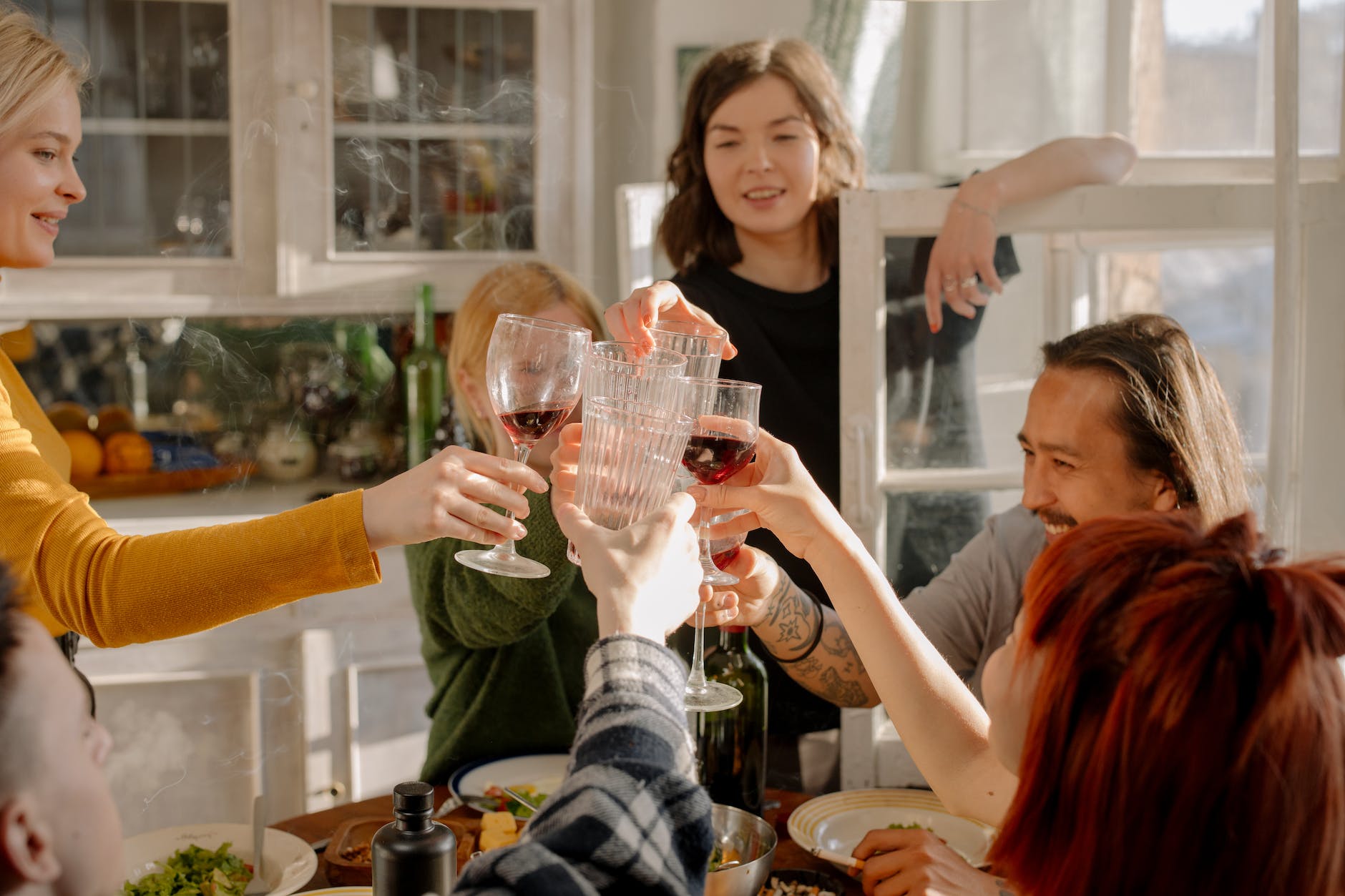Co-existence can be peaceful, but only with mutual respect and healthy boundaries.
“People who say relationships are a lot of work might be in the wrong relationships.” —Dr. Christopher Ryan. Is Dr. Ryan speaking from wisdom, or does his statement merely reflect our modern attitudes, tell us what we want to hear?
Because I believe that relationships are intended to require hard work because they are worth it.
I agree with the message from this poem in Wendell Berry’s collection, A Small Porch:
Love is a universe beyond
The daylight spending zone:
As one we more abound
Than two alone.
On the contrary, living alone makes you “brittle.” As a good friend who has lived alone for decades once told me: “It becomes a paradox of wanting to be alone when you are out with people and not wanting to be alone when you are at home. You don’t have much patience for other people’s ways of doing things; you want them to do things your way. You get accustomed to your own company, lonely or not.”
I agree with this friend, and that’s why I make an effort to share housing with friends or other (trustworthy) people who are willing to house-share. I do not want to become brittle, rigid, inflexible. I don’t want to start talking to myself. Maybe this explains why so many single women have cats.
Being one with someone means no longer being two alone.
But it’s not so easy to get along in close quarters with others. I’m now in my 60s, no longer as able to roll with the punches the way I did while living in a college dorm at the age of 18.
Co-existence forces us to practice compromise, collaboration, and cooperation. Living with other people serves as sandpaper to smooth out our rough edges; it’s good for us. There is no room for Machiavellian manipulators, or for covetous rogues who can’t stand to see you eating something without having to have some, too; or for the uncooperative types who refuse to do their share or even to participate in a necessary conversation. This could be the case in a bad marriage, but it does not have to be the case among chosen roommates.
“Good fences make good neighbors,” coined Robert Frost. Boundaries are necessary. However, a fence does not mean a wall. A fence implies a boundary that is thin and permeable, not something opaque that shuts out others.
The best way to live in a foreign country, I have found over the years, is to have a roommate or to live with a family. But our individualistic society has made us unfit to live in close quarters with other people, especially strangers. It’s not easy to adapt and adjust to sharing space when we’ve been in the habit of living alone. But in my opinion, it’s worth the effort to try.
During long stretches of solitude, I have had time to reflect on past relationships and what worked or didn’t work in keeping them.
Here are some things I have learned:
Relationships endure because two people share a mutual sense of need for one another. This is true in relationships between parents and their children, or among siblings, despite conflicts and misunderstandings. There is a lot more to lose by giving up on a family member. I wish this were the case with marriages: when a marriage ends, the extended family members lose one another, too.
Building a new relationship with someone takes a lot of time and effort. It is not wise to give up too easily. Better to be tolerant, patient. It takes time to know another person.
Both people must value the relationship enough to hang on during the tough times. Maybe it’s wise to make sure the other person is as committed to this as you are before you go too far.
Selfishness must go. Our negative and selfish thoughts can create conflicts and misunderstandings, so it’s also important to be mindful of where your feelings are coming from: have you allowed your trivial thoughts to influence your actions toward the other person?
A relationship won’t work unless both parties are willing to let go of the past. Hanging on to resentments from the past tend to snowball until they overshadow day to day interactions. Some of the most painful and futile interactions come about when one person brings up the past, not because he/she wants reconciliation and understanding but because he/she wants to hurt and punish the other person for something that was not forgiven. The best way to hold onto someone I love is by choosing to stay in the moment, focusing on what is happening now, accepting him/her at face value in that interaction.
A relationship requires mutual need for forgiveness: to be willing at all times both to forgive and to ask forgiveness. You know when a person apologizes and really means it. But never refuse to accept an apology, even if you feel it’s not really sincere: it’s the act that counts, and hopefully the feelings will soon follow. There is nothing more cruel and destructive to a relationship than when one of you apologizes and the other withholds forgiveness by judging the intention, imagined or otherwise: “You don’t really mean it, I don’t believe you. You’re not sorry enough.” That’s the unforgivable.
On the other hand, apologies must be mutual, balanced. If one person does all the apologizing, there is something very wrong with that relationship. When I myself was newly married, I gave some marriage advice to a close friend: “Always be the one to say you’re sorry, even if it wasn’t your fault.” That was bad advice.
Loving isn’t enough: Acts of love are the real thing. Love is a verb. It goes without saying that any committed relationship requires displays of the best of our humanity. We care for our loved one in the same way we hope to be cared for: with patience for our flaws, compassion for our failures, kindness when we don’t deserve it.
Sometimes a relationship needs time or space to breathe. When this happens, I am tempted to feel insecure, to want to control or to pull away, one or the other. I have learned that when I am tempted to do something drastic that will damage a relationship, what I need to do instead is to step back, breathe, sit with the discomfort – and trust that all shall be well. And if it’s not, if someone decides to leave relationship with me, or chooses not to honor my need for kindness yet wants to continue our relationship without changing his/her behavior, the best thing I can do is to continue to be kind toward the other, but to respectfully refuse to engage in the hurtful behavior.
Leave the door open: Wait for reconciliation. I have found, over the years, that the few friends and family members who decide to walk away or who refuse to be kind eventually return to me with a desire for reconciliation. It sometimes takes years, but when it does happen I am grateful that I was able to refrain from doing anything that would have permanently severed that relationship. As long as I continue to make new friends and to keep the relationships I have, there will be struggle and conflict. But I have learned that even if I need to keep a distance from a friend, I also leave a door open just in case he/she wants to return.
Above all, RESPECT. Relationships are not meant to be easy, and sometimes they do turn out to be not worth the effort. Another friend, a Brazilian, has “time heals” tattooed on her shoulder as a reminder of the painful ending of her marriage. “Be patient, always,” she tells me. But she also tells me that healthy boundaries are necessary in a healthy relationship. Women, especially, need to be strong from the beginning by letting men know what they will not tolerate. If men refuse to respect our needs, women have the right to respect ourselves by leaving that relationship.
We Have a First World Problem
While relationship experts in the US advise us not to try – if a relationship takes work, you’re in the wrong relationship – wisdom from other cultures offers some different advice.
Many years ago, I read The Four Agreements, by Don Miguel Ruiz.
- Be Impeccable With Your Word.
- Don’t Take Anything Personally.
- Don’t Make Assumptions.
- Always Do Your Best.
These agreements can be practiced in any social interaction, not just in an intimate relationship. How is it that we forget to practice them with those we love the most?
I found this quote in one of Waylon’s editorials in Elephant Journal, “The Bravest Thing We Can Do Each Day”: “The essence of warriorship, or the essence of human bravery, is refusing to give up on anyone or anything.” – Chögyam Trungpa
What an opposing concept to the first piece of advice in this essay by a Western expert: “People who say relationships are a lot of work might be in the wrong relationships.” – Dr. Christopher Ryan.
Personally, I tend to agree with Trungpa’s advice.
The difference between the first quote, by an American doctor, and this one, by a Buddhist monk, reveal some stark contrasts between Western and Eastern culture.
Interestingly, the tenets of Buddhist thought are closer to the teachings of Jesus Christ and true Christianity than are the “science” of Western psychology, American or not.
Back home in the USA, I was brainwashed by peers and therapists – and even from the pulpit – into believing that life is about loving yourself first.
But that isn’t actually what Jesus said. “Love your neighbor as you love yourself” are the exact words, because neighbor and self are connected.
I would much rather believe in a God who never gives up on me, no matter how awful I am, than believe in a God who judges there comes a time when it’s just too hard to love me, so it’s time to give up.
In the past couple of weeks I have bumped up against these two concepts of how to relate to others in some challenging situations. Just when I believe it’s time to give up and I am tempted to follow the advice of Dr. Christopher, I remember my own flawed human self. Would I want someone to give up on me?
I remember the words and actions of tico and Brazilian friends who possess a depth of understanding about relationships that my entitled American education failed to cover in its K-12 curriculum.
I remember bell hooks’ thesis, in her book All About Love, that the underlying problem in American society is lovelessness.
I find myself faced with the revelation that perhaps I have some new things to learn, even at my age.
But I can’t learn these new things alone. I need to have someone – a roommate or a companion – to help me learn them.
Once upon a time, I wrote a memoir entitled Love Culture, a work that came out of my experiences and observations while living in Costa Rica, from 2009-2011, and 2012-2013. I am still learning about love, still drawing from the wisdom of new people in my life, still trying to understand what my role is in the relationships in which I find myself.
But one thing I do know: relationships are essential, and I intend to cultivate and cherish them. Having good friends is true wealth, the best kind of social security.

